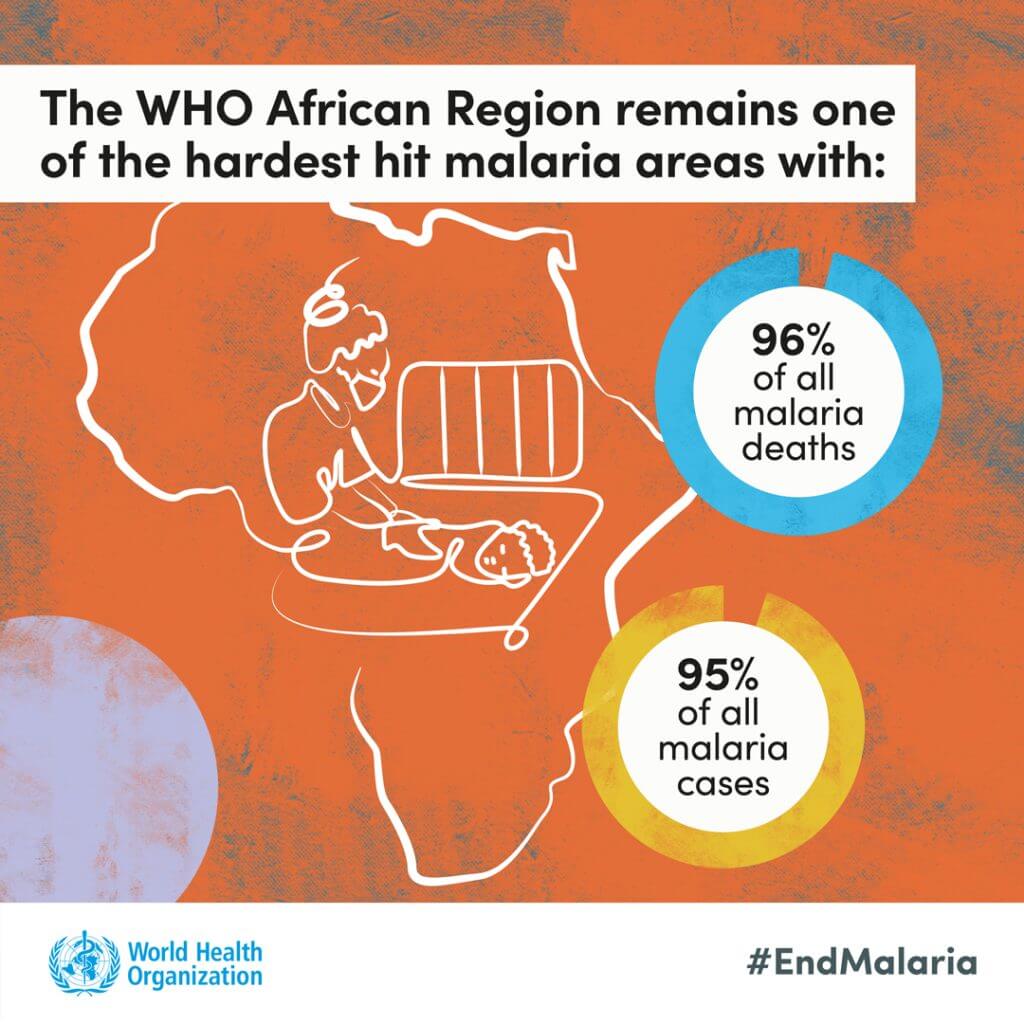World Malaria Report 2021: The WHO African Region amongst the hardest hit by malaria

A child now dies of malaria every minute, and in almost all cases this child is in Africa.
According to the World Health Organisation (WHO)’s most recent World Malaria Report, published last week, 627,000 people globally – most of them children under the age of five in Africa – were killed by malaria last year – triple the number that are reported to have died from the coronavirus in Africa.
With an updated methodology used to calculate deaths for children under five years of age, the report shines a new light on the true burden of malaria in Africa. 2020 saw an increase in malaria cases and deaths, most of which were in sub-Saharan Africa. While the new methodology accounts for this increase, this only tells part of the story.
The report outlines a convergence of threats in the region that pose an added challenge to disease malaria control efforts. These include:
- antimalarial drug resistance in East Africa
- HRP2 gene deletions
- mosquito resistance to insecticides
- invasive vector species (Anopheles stephensi) in the horn of Africa.
This is in addition to the continued uncertainty and disruptions caused by the COVID-19 pandemic.

The report reveals that Africa shoulders the heaviest burden of malaria globally. 95% of malaria cases and 96% of deaths are concentrated in sub-Saharan Africa, with 80% of all malaria deaths in Africa estimated to be among children under the age of five. The economic, social and human consequences of malaria on the continent are vast, and urgent action is needed to meet the targets set out by the WHO’s Global Technical Strategy for malaria for 2030.
“African governments and their partners need to intensify their efforts so that we do not lose even more ground to this preventable disease”
Dr Matshidiso Moeti, WHO Regional Director for Africa
Since 2015, the rate of progress made against the disease has stalled in many high-burden countries; in 2020 an already precarious situation was worsened by the COVID-19 pandemic.
There are, however, reasons to be hopeful. In Africa and globally, the malaria community has made tremendous strides over the last two decades, and 1.7 billion cases and 10.6 million deaths were averted between 2000 and 2020. Moreover, during the pandemic, malaria-endemic countries, most of which are in Africa, succeeded in avoiding the worst-case scenario of malaria deaths projected by the WHO.
At Target Malaria, we are passionate about the potential of new tools to advance progress towards malaria elimination, and it was great to see the WHO report highlight that “innovation in interventions will enable countries to maximise their progression along the path to elimination”. Continued innovation carried out in partnership with malaria-affected communities and African scientists is essential to stay ahead of the malaria mosquito and parasite.
In the past eighteen months, the pandemic has spurred a new wave of innovation and scientific discovery. Off the back of the success of COVID-19 vaccines and the first approval of a malaria vaccine, BioNTech aims to develop the first mRNA malaria vaccine and strengthen vaccine production hubs in Africa.
The rate of scientific progress around COVID-19 over the last year has made me more convinced than ever of the importance and potential of research and innovation within the malaria community. At Target Malaria, we will continue to work closely with African local communities, governments and regulatory authorities towards our aim of developing new, cost-effective and sustainable genetic technologies to modify mosquitoes, reduce malaria transmission and help achieve a world free of malaria.
